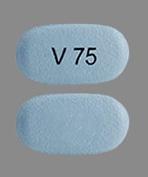Ivacaftor/tezacaftor Disease Interactions
There are 8 disease interactions with ivacaftor / tezacaftor.
- Hepatic impairment
- Renal impairment
- Cataracts
- Hepatic impairment
- Hypertension
- Organ transplant
- Pulmonary impairment
- Renal impairment
Elexacaftor (applies to ivacaftor/tezacaftor) hepatic impairment
Major Potential Hazard, Moderate plausibility. Applicable conditions: Liver Disease
Elexacaftor (available only in combination with ivacaftor and tezacaftor) should not be used in patients with severe hepatic impairment and its use in patients with moderate hepatic impairment should be limited to those patients for which there is a clear medical need and the benefit exceeds the risks. If elexacaftor is used in patients with moderate hepatic impairment, the dose should be reduced and liver function tests should be closely monitored.
References (1)
- (2019) "Product Information. Trikafta (elexacaftor/ivacaftor/tezacaftor)." Vertex Pharmaceuticals
Elexacaftor (applies to ivacaftor/tezacaftor) renal impairment
Moderate Potential Hazard, Moderate plausibility. Applicable conditions: Renal Dysfunction
Elexacaftor (available only in combination with ivacaftor and tezacaftor), has not been studied in patients with severe renal impairment or end-stage renal disease. No dosage adjustment is recommended in patients with mild (eGFR 60 to <90 mL/min/1.73 m2) or moderate (eGFR 30 to <60 mL/min/1.73 m2) renal impairment. Use with caution in patients with severe (eGFR <30 mL/min/1.73 m2) renal impairment or end-stage renal disease.
References (1)
- (2019) "Product Information. Trikafta (elexacaftor/ivacaftor/tezacaftor)." Vertex Pharmaceuticals
Ivacaftor (applies to ivacaftor/tezacaftor) cataracts
Moderate Potential Hazard, Moderate plausibility. Applicable conditions: History - Radiation Therapy
Cases of non-congenital lens opacities or cataracts have been reported in pediatric patients treated with products containing ivacaftor. Although other risk factors could be present in some cases (e.g., corticosteroid use or exposure to radiation), a possible risk attributable to this medication cannot be excluded. Baseline and ophthalmological examinations are recommended in pediatric patients initiating treatment
References (2)
- (2023) "Product Information. Orkambi (ivacaftor-lumacaftor)." Vertex Pharmaceuticals
- (2023) "Product Information. Kalydeco (ivacaftor)." Vertex Pharmaceuticals, SUPPL-40
Ivacaftor (applies to ivacaftor/tezacaftor) hepatic impairment
Moderate Potential Hazard, Moderate plausibility. Applicable conditions: Liver Disease
There are no data on the use of ivacaftor in patients with severe liver dysfunction. Ivacaftor should not be used in patients less than 6 months of age with any level of hepatic impairment. Caution is recommended if using products containing ivacaftor in cystic fibrosis (CF) patients with advanced liver disease. Use of ivacaftor in these patients has been associated with worsening of liver function, including hepatic encephalopathy. In CF patients with pre-existing cirrhosis with portal hypertension, liver function decompensation, including liver failure leading to death, has been reported. Closely monitor patients as recommended by the manufacturer after initiating treatment, especially in those with liver disease or a history of transaminase/bilirubin elevations.
References (2)
- (2023) "Product Information. Orkambi (ivacaftor-lumacaftor)." Vertex Pharmaceuticals
- (2023) "Product Information. Kalydeco (ivacaftor)." Vertex Pharmaceuticals, SUPPL-40
Ivacaftor (applies to ivacaftor/tezacaftor) hypertension
Moderate Potential Hazard, Moderate plausibility.
The use of products containing ivacaftor is associated with an increase in blood pressure. Close monitoring of blood pressure is recommended periodically in all patients, in particular in hypertensive patients.
References (2)
- (2023) "Product Information. Orkambi (ivacaftor-lumacaftor)." Vertex Pharmaceuticals
- (2023) "Product Information. Kalydeco (ivacaftor)." Vertex Pharmaceuticals, SUPPL-40
Ivacaftor (applies to ivacaftor/tezacaftor) organ transplant
Moderate Potential Hazard, Moderate plausibility.
The use of products containing ivacaftor has not been studied in patients with cystic fibrosis who have undergone organ transplantation. Use in transplanted patients is not recommended due to potential drug-drug interactions with immunosuppressants.
References (2)
- (2023) "Product Information. Orkambi (ivacaftor-lumacaftor)." Vertex Pharmaceuticals
- (2023) "Product Information. Kalydeco (ivacaftor)." Vertex Pharmaceuticals, SUPPL-40
Ivacaftor (applies to ivacaftor/tezacaftor) pulmonary impairment
Moderate Potential Hazard, Moderate plausibility.
The use of products containing ivacaftor is associated with respiratory events (e.g., chest discomfort, dyspnea, and respiration abnormal). Close monitoring is recommended in patients with advanced lung disease (percent predicted FEV1 less than 40).
References (2)
- (2023) "Product Information. Orkambi (ivacaftor-lumacaftor)." Vertex Pharmaceuticals
- (2023) "Product Information. Kalydeco (ivacaftor)." Vertex Pharmaceuticals, SUPPL-40
Ivacaftor (applies to ivacaftor/tezacaftor) renal impairment
Moderate Potential Hazard, Moderate plausibility. Applicable conditions: Renal Dysfunction
Ivacaftor has not been studied in patients with renal impairment. No dose adjustment is necessary for patients with mild or moderate renal impairment, however, caution is recommended in patients with severe renal impairment or end-stage renal disease.
References (2)
- (2023) "Product Information. Orkambi (ivacaftor-lumacaftor)." Vertex Pharmaceuticals
- (2023) "Product Information. Kalydeco (ivacaftor)." Vertex Pharmaceuticals, SUPPL-40
Switch to consumer interaction data
Ivacaftor/tezacaftor drug interactions
There are 475 drug interactions with ivacaftor / tezacaftor.
Ivacaftor/tezacaftor alcohol/food interactions
There are 3 alcohol/food interactions with ivacaftor / tezacaftor.
More about ivacaftor / tezacaftor
- ivacaftor/tezacaftor consumer information
- Check interactions
- Compare alternatives
- Side effects
- Dosage information
- During pregnancy
- Drug class: CFTR combinations
- En español
Related treatment guides
Drug Interaction Classification
| Highly clinically significant. Avoid combinations; the risk of the interaction outweighs the benefit. | |
| Moderately clinically significant. Usually avoid combinations; use it only under special circumstances. | |
| Minimally clinically significant. Minimize risk; assess risk and consider an alternative drug, take steps to circumvent the interaction risk and/or institute a monitoring plan. | |
| No interaction information available. |
See also:
Further information
Always consult your healthcare provider to ensure the information displayed on this page applies to your personal circumstances.


